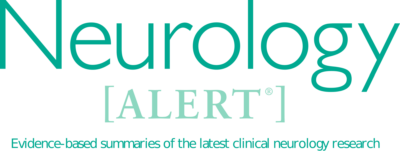
Neurology Alert – January 1, 2019
January 1, 2019
View Issues
-
Effect of Sleep on Levodopa-Induced Dyskinesia in Parkinson’s Disease
Parkinson’s disease is associated with sleep disorders commonly. Disrupted sleep patterns appear to make dyskinesias worse in patients treated with levodopa therapy.
-
Utility of Ictal Magnetoencephalography for Identifying Seizure Onset Zone
In a review of 377 magnetoencephalography (MEG) studies in epilepsy patients undergoing presurgical workup, 44 patients were found to have one or more seizures during routine recordings, lasting up to a mean of 51.2 minutes. Ictal MEG provided unique localizing data in about one-third of patients. For patients with frequent seizures or reliably induced seizures, MEG may be a useful supplemental tool for medically refractory epilepsy patients undergoing presurgical evaluation.
-
Apolipoprotein E and CSF Levels in Men and Women With Alzheimer’s Disease
Apolipoprotein E epsilon 4 (APOE4) genotype, the stronger genetic risk factor for late-onset Alzheimer’s disease, negatively affects cerebrospinal levels of tau protein in a sex-dependent manner, whereby the effect of APOE4 is stronger in women than men.
-
Correlation of Electromyography With Pathology in Myopathy
A detailed analysis of electromyography features showed a high correlation with muscle pathology. However, pathologic changes on muscle biopsy may be present even with a totally normal electromyogram.
-
Clinical Outcomes After Oral Anticoagulant-Associated Intracerebral Hematoma
In this meta-analysis of multiple observational studies, clinical outcomes after oral anticoagulant-associated intracerebral hematoma were similar for those associated with vitamin K antagonists or the new class of direct oral anticoagulants.
